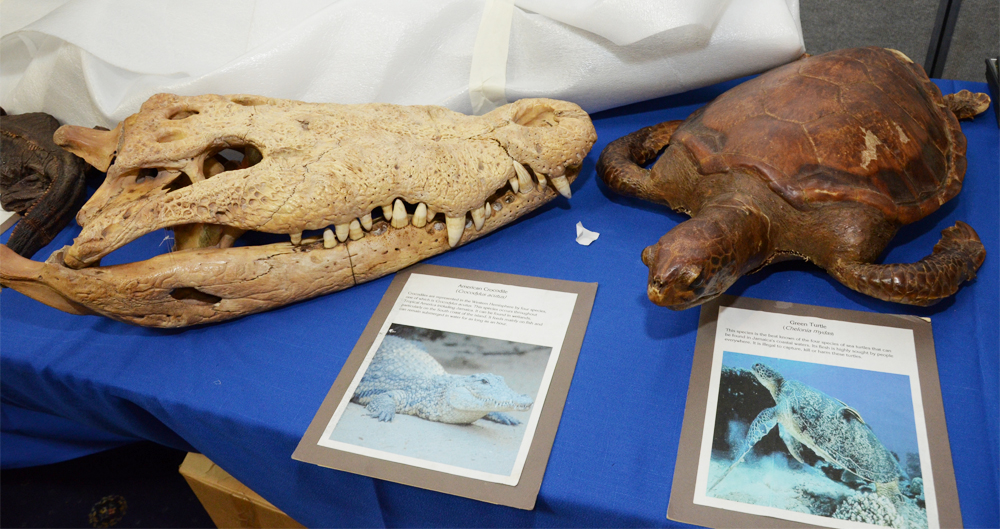by efjuser | Feb 15, 2018 | EFJ News, News Archive | 0 comments
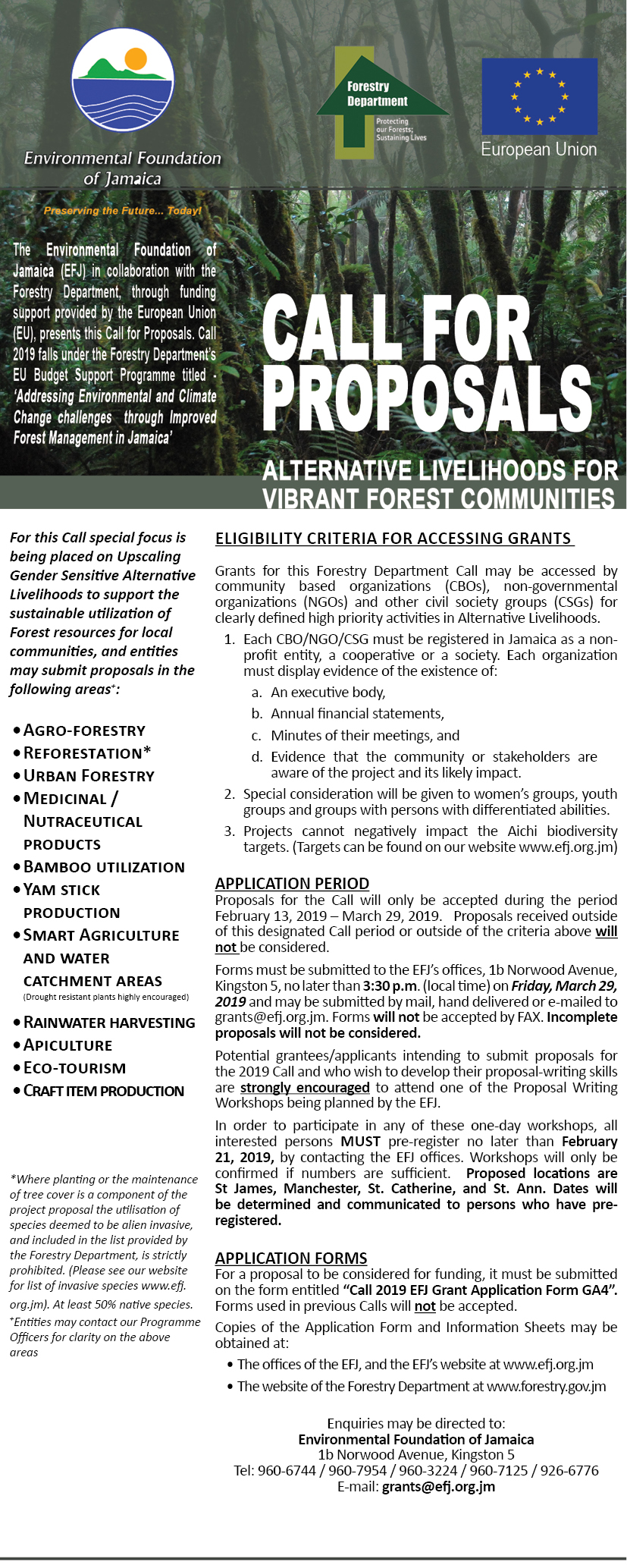
Did you know… that the EFJ is the Fund Administrator for the Special Climate Change Adaptation Fund (SCCAF)?
The EFJ signed an agreement to administer the funds on July 28, 2016. Over a four year period US$4.7 million will be used to provide grant funding to finance community based and sector driven adaptation initiatives island-wide. The SCCAF will provide grants that can be accessed by community based organizations, other civil society groups and selected public sector agencies, for clearly defined high priority activities, particularly related to building the resilience of the natural environment and contributing to livelihoods protection and poverty reduction The Government of Jamaica (GOJ), the Inter-American Development Bank (IDB) and the World Bank developed Jamaica’s Pilot Programme for Climate Resilience (PPCR) to help the country to strengthen its climate resilience through enhancing adaptive capacity across priority sectors. Jamaica’s PPCR has 5 projects being implemented to address varying areas of vulnerability (www.ppcrja.org.jm). As of March 2018 eighty four (84) projects have received grant awards totaling J$382.16 million.
Did you know…
The Jamaica Protected Areas Trust (JPAT) was established out of discussions between the Governments of the United States and Jamaica, the Nature Conservancy and NGOs about the inadequate support for protected areas. As a result, JPAT was established and a Debt Swap was negotiated between the Governments of the United States and Jamaica, facilitated by The Nature Conservancy. JPAT administered the Forest Conservation Fund that was put in place through this Debt Swap Agreement. The Jamaica Protected Areas Trust Limited (JPAT) is a public-private initiative that seeks to protect and enhance Jamaica’s natural resources and biodiversity. Registered in 2004, JPAT supports the effective management of the country’s protected areas by:
The EFJ and JPAT/FCF has merged operations.
Did you know…
Declared extinct in 1940, the Jamaican Iguana (Cyclura collei) was rediscovered in 1990 and remains on the Critically Endangered Species List. With funding from the EFJ more than 130 iguanas have been successfully released into the wild.
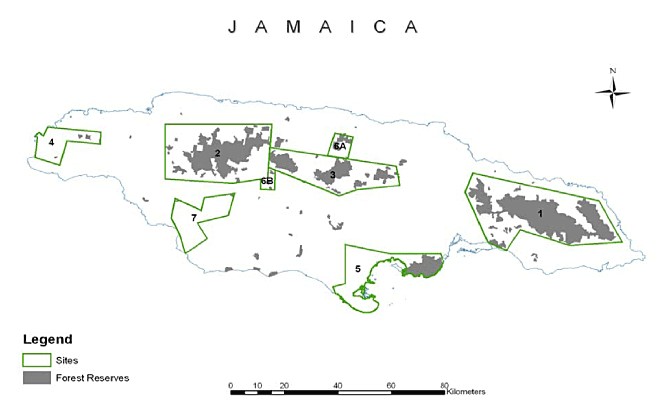
Jamaica Forest Reserve
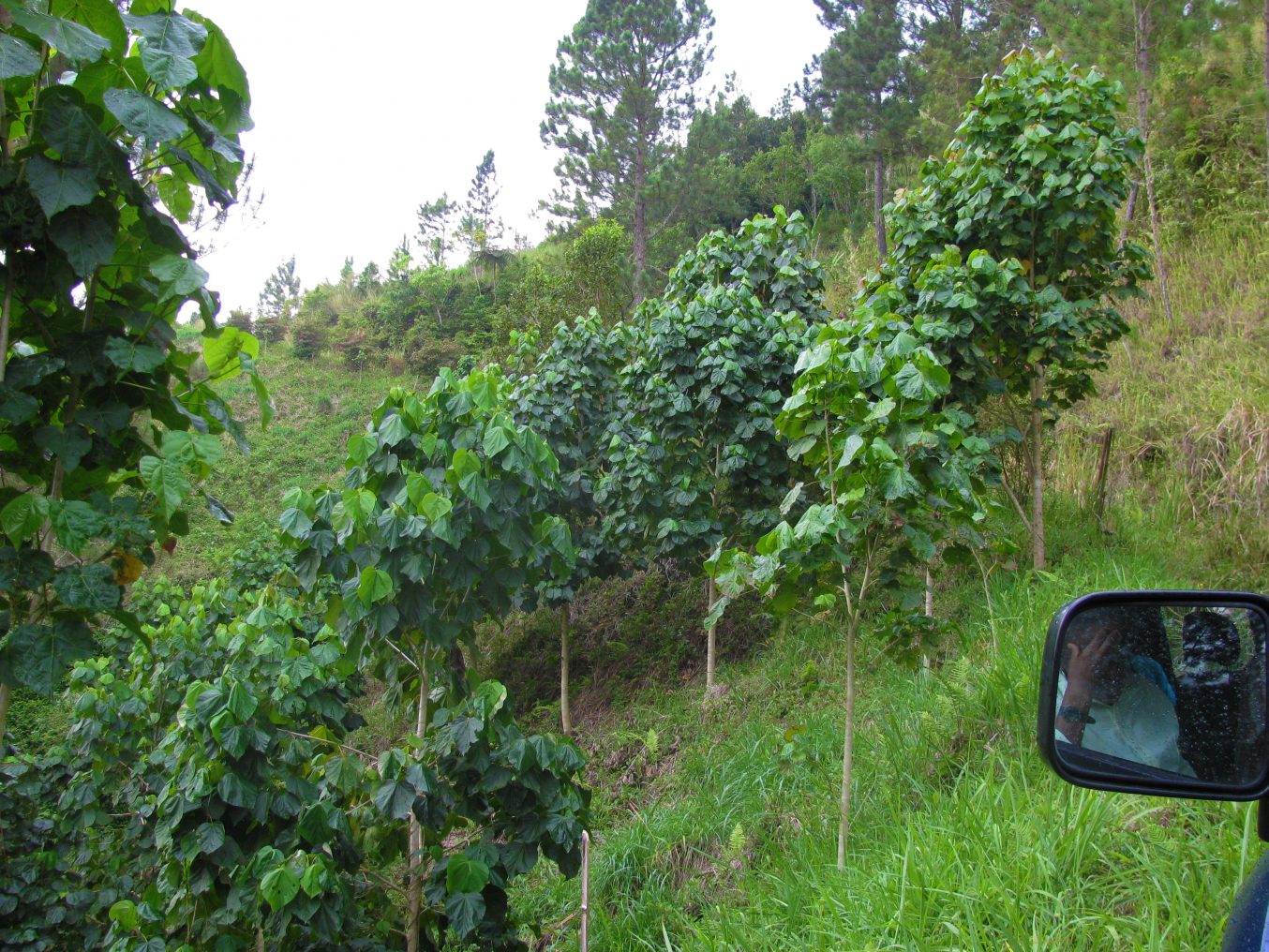
What are the types of grants?
The FCA makes provision for two types of grants:
What activities are eligible for funding?
Grants must be used within the Priority Sites to –

Protected Areas
Protected areas in Jamaica include parks, national parks, forest reserves, and forest management areas and fish sanctuaries. Examples of some of Jamaica’s protected areas are the Negril and Montego Bay Marine Parks, Palisadoes/Port Royal Protected Area, Mason River Protected Area, Portland Bight Protected Area, and the Blue and John Crow Mountain National Park.
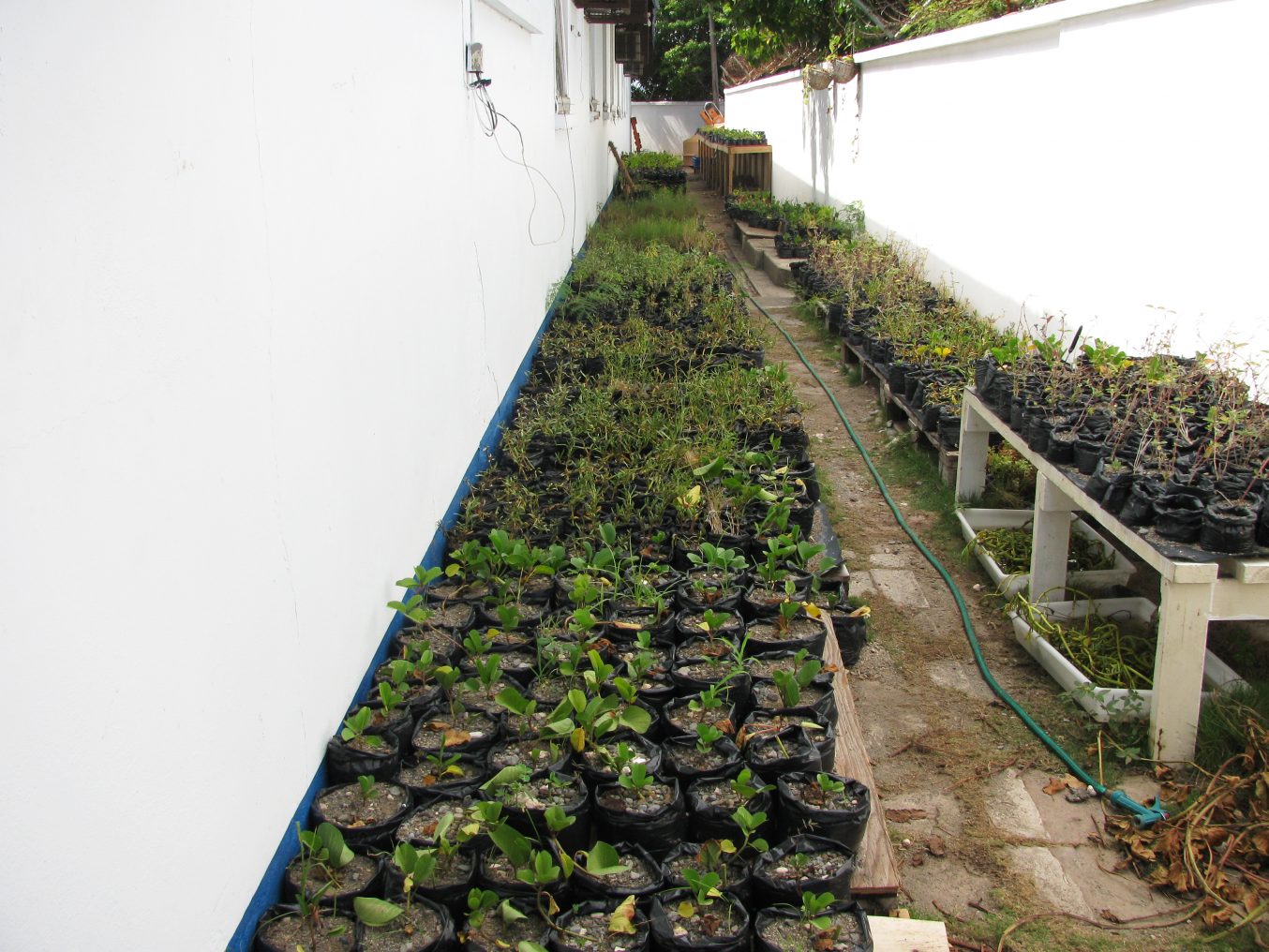
Wetland and Watershed Management
We have funded the restoration of watersheds and wetlands across Jamaica. These community-based projects are leading to reforestation of watersheds and restoration of mangroves in areas like support community sensitization in monitoring and protection activities as these sensitive habitats are vital to biodiversity and flood control.

Biodiversity
EFJ funds research and applied projects aimed at conserving and protecting Jamaica’s extensive biodiversity. From fish santuaries and tours to interpretive centres and signs. There have also been strong links with the University of the West Indies and others that have led to support for the Jamaica Iguana and the documentation of various native species.

Encouraging Child and Natural Environment Interface
Many of the initiatives supported by the EFJ encourage Jamaica’s children to respect and protect our natural environment. Two such examples are the very successful Schools for Environment Programme (SEP) and the Building Application for Nature in Children at Risk (BANCAR) projects.
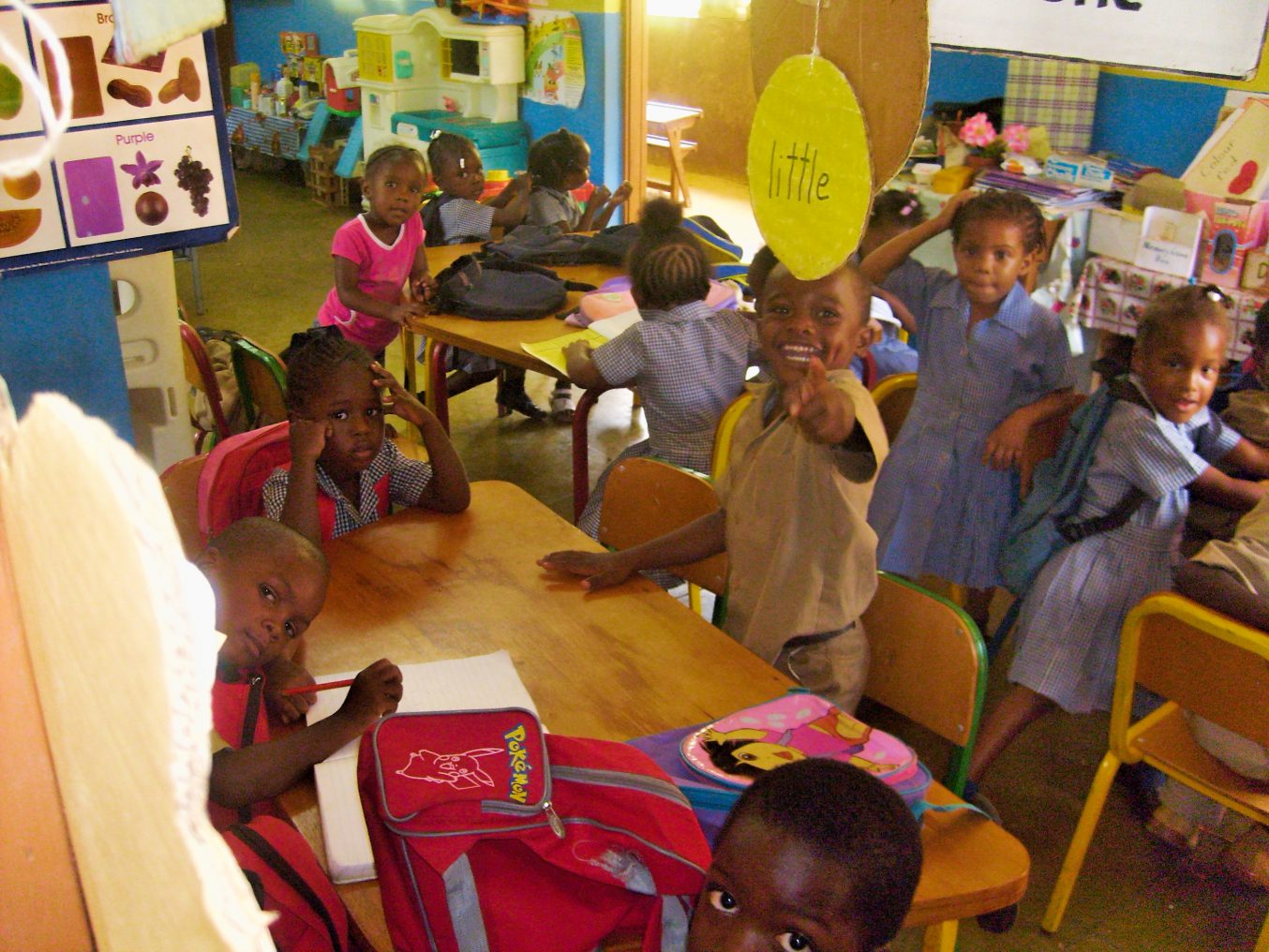
Facilitating the creation of support groups
We support the establishment of sustainable initiatives that support persons in need. The Roving Caregivers Programme, for example, is a parenting support project in which out-of-work youth are trained to conduct home visits to educate parents on ways to care and effectively engage their young children. The very successful programme started in rural Jamaica and has now spread to six (6) Caribbean countries.
Marine and Coastal Research
EFJ supports the sustainable management of Jamaica’s coastal and marine resources. In addition to supporting fishing communities and Marine Protected Areas we have funded research into Jamaican mangroves and marine species. This research has added to the body of knowledge on issues such as the value of mangroves, coral health and the impact of hurricanes.
